VERSIÓN EN ESPAÑOL (click aquí)
Cárdenas
La ciudad de las primicias, como a su gente le gusta llamarla. Cárdenas, como se nombra oficialmente. Esta ciudad ubicada al norte de la provincia de Matanzas, muy cercana a la famosa playa de Varadero, rezuma historia y tradición.
En la calle Real, que es la principal de esta ciudad, están presentes diversos negocios como bares, cafeterías y centros de recreación. La primera parada fue por aquí, en una heladería con esta curiosa decoración:
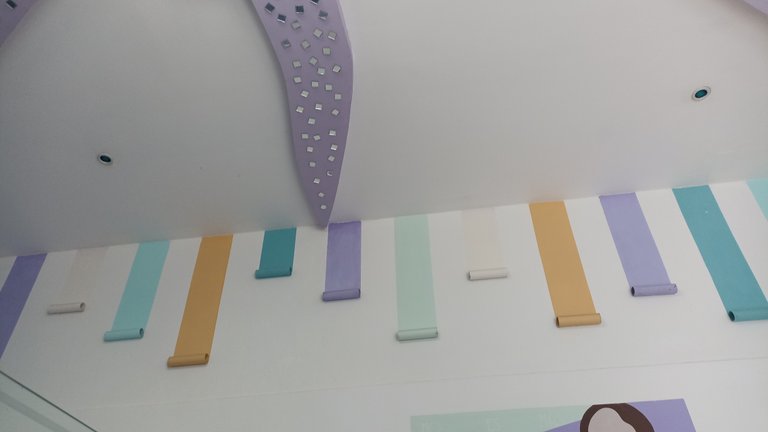
Luego de un rato deambulando por la ciudad, nos encontramos con el parque José Antonio Echeverría. Este debe su nombre a que la casa natal de este patriota se encuentra enfrente de una de las calles del parque.
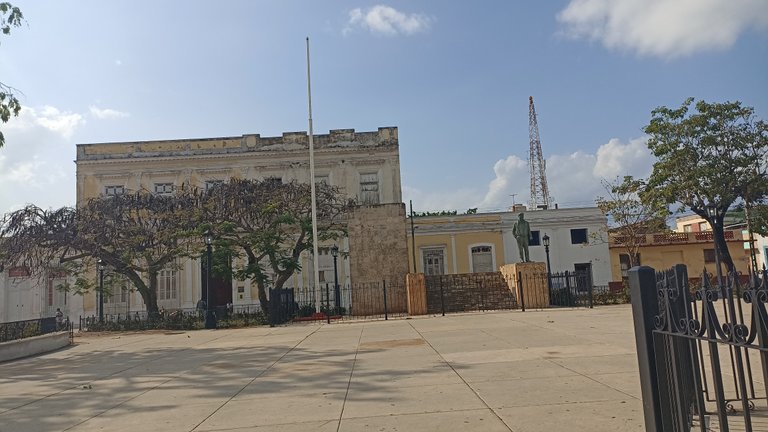
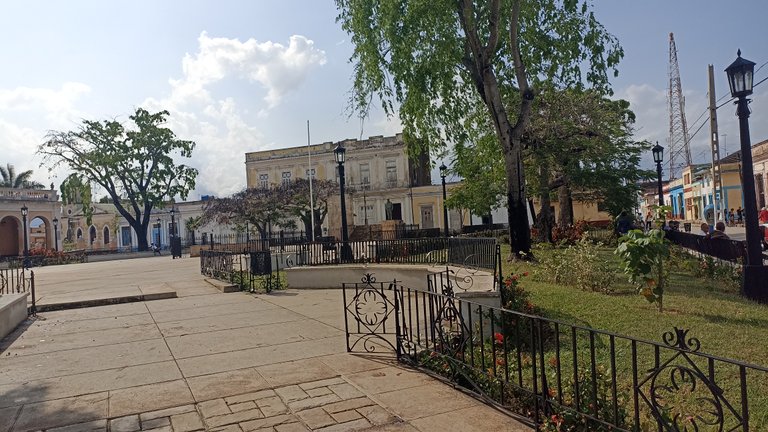
En los alrededores también existen diferentes museos, como el museo Oscar María de Rojas y el Museo de la Batalla de Ideas. Este último fue rebautizado así dutante la campaña por el regreso del niño Elián[1] (nacido en también en esta ciudad), pero previamente fue una estación de bomberos (lo que es algo obvio porque permanece la inscripción que lo aclara).
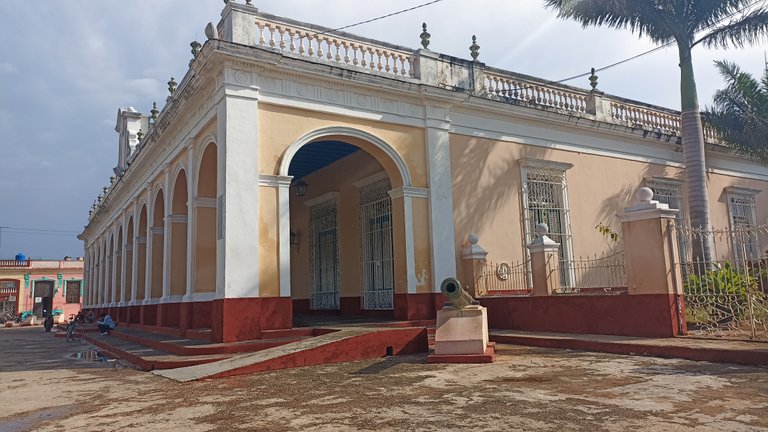
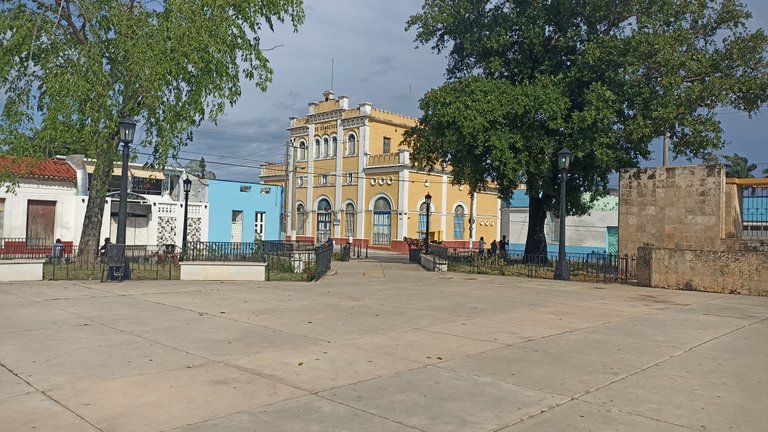
Encontramos muchas edificaciones antiguas que conservan parte de su arquitectura original pero que están prácticamente derruidas, como este piso y pared que denotan una antigua casa con puntal alto.



Dirigimos nuestros pasos hasta el parque Colón, donde se encuentran la catedral de Cárdenas, el hotel La Dominica y la primera estatua de Cristobal Colón de América, erigida en 1860.


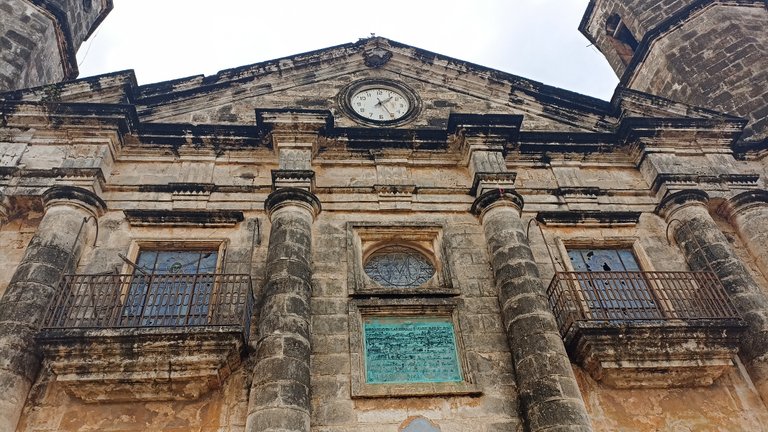
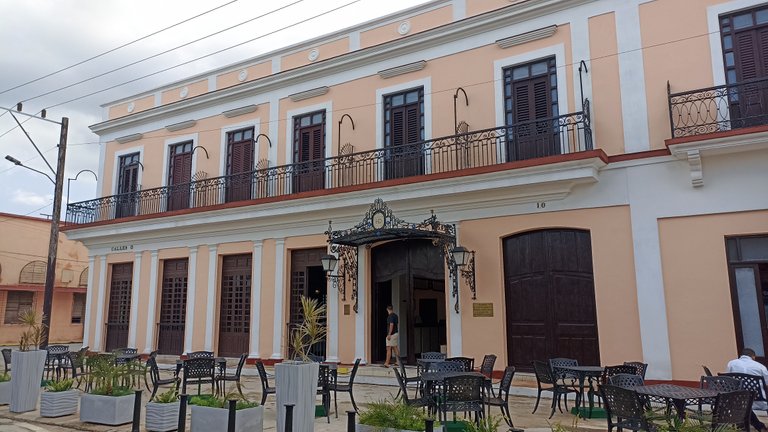
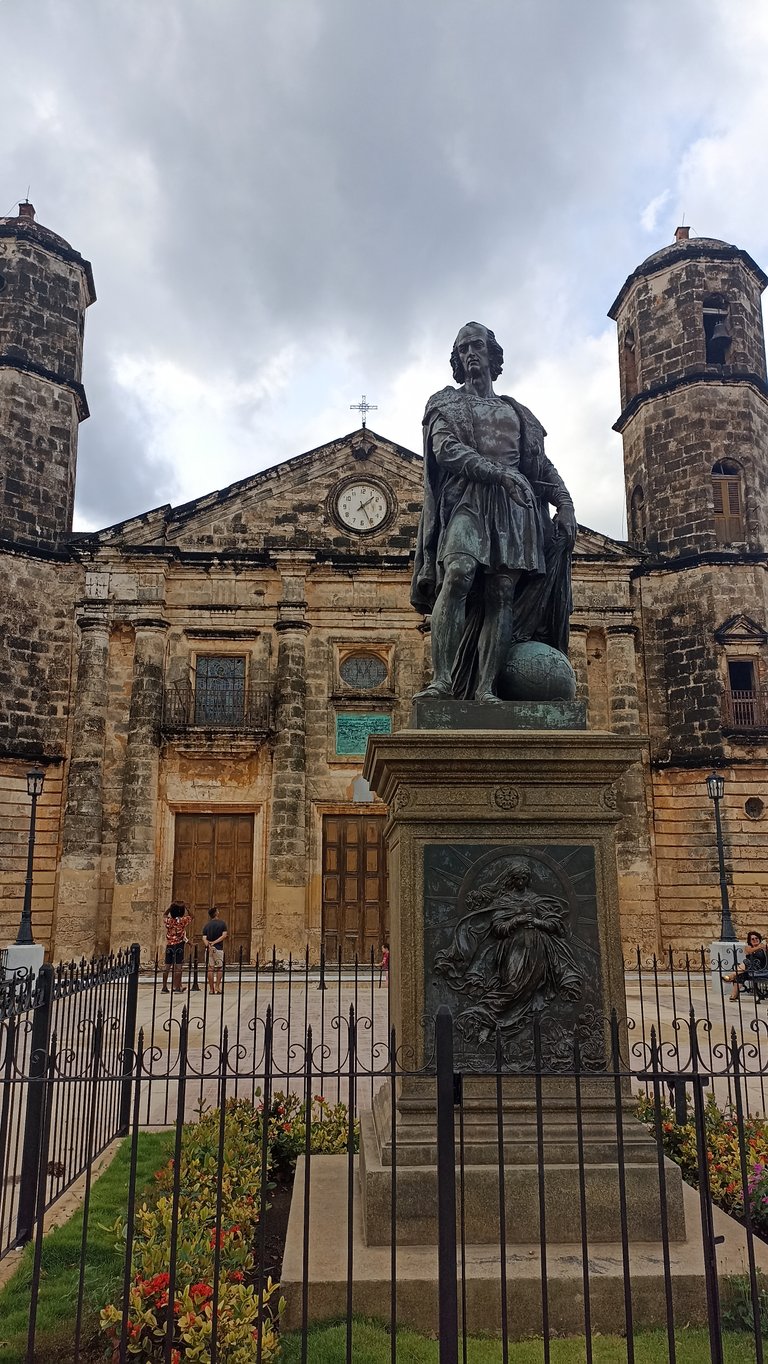
Notamos en el mismo parque un elemento rojo metálico un poco anacrónico y al preguntar nos dijeron que es una boya que el ciclón del 36[2] arrastró desde la costa hasta este punto y donde mismo calló la erigieron como monumento en recuerdo de aquél desastre.
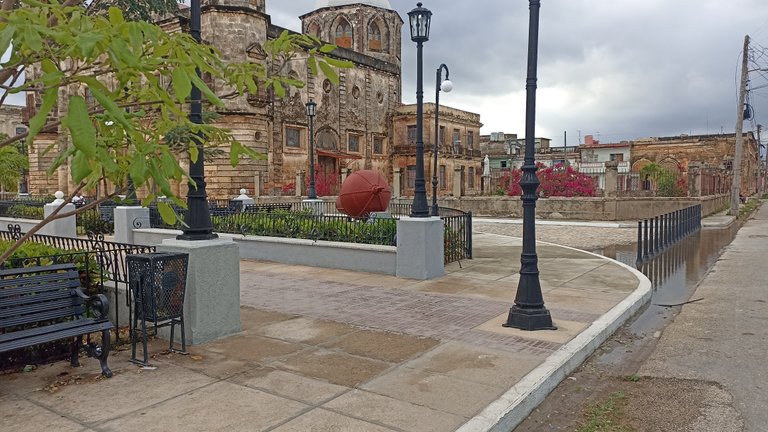
Cerca del parque se encontraba una antigua logia masónica, con esta inscripción en la acera.
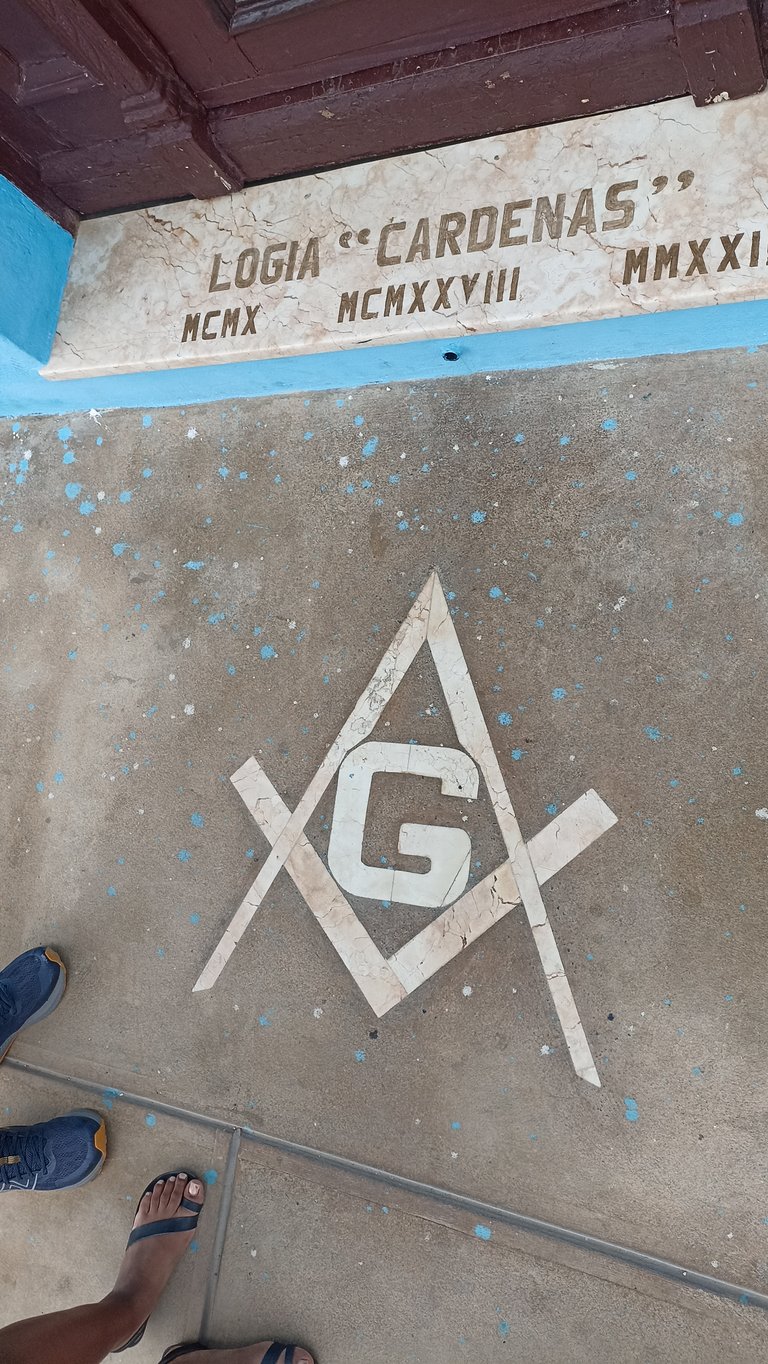
Vimos también una edificio abandonada que parecía que tenía un bosque creciendo en su interior, así como algunos edificios industriales como esta fabrica de ron.

 .
.
Finalmente, encontramos el punto donde se alzó por primera vez la bandera cubana porNarciso López. Son embargo, el monumento nos decepcionó un poco porque aunque el asta monumental era imponente, la bandera que ondeaba se veía bastante insignia. No obstante, un lugar con mucho atractivo al encontrarse justo frente al mar.
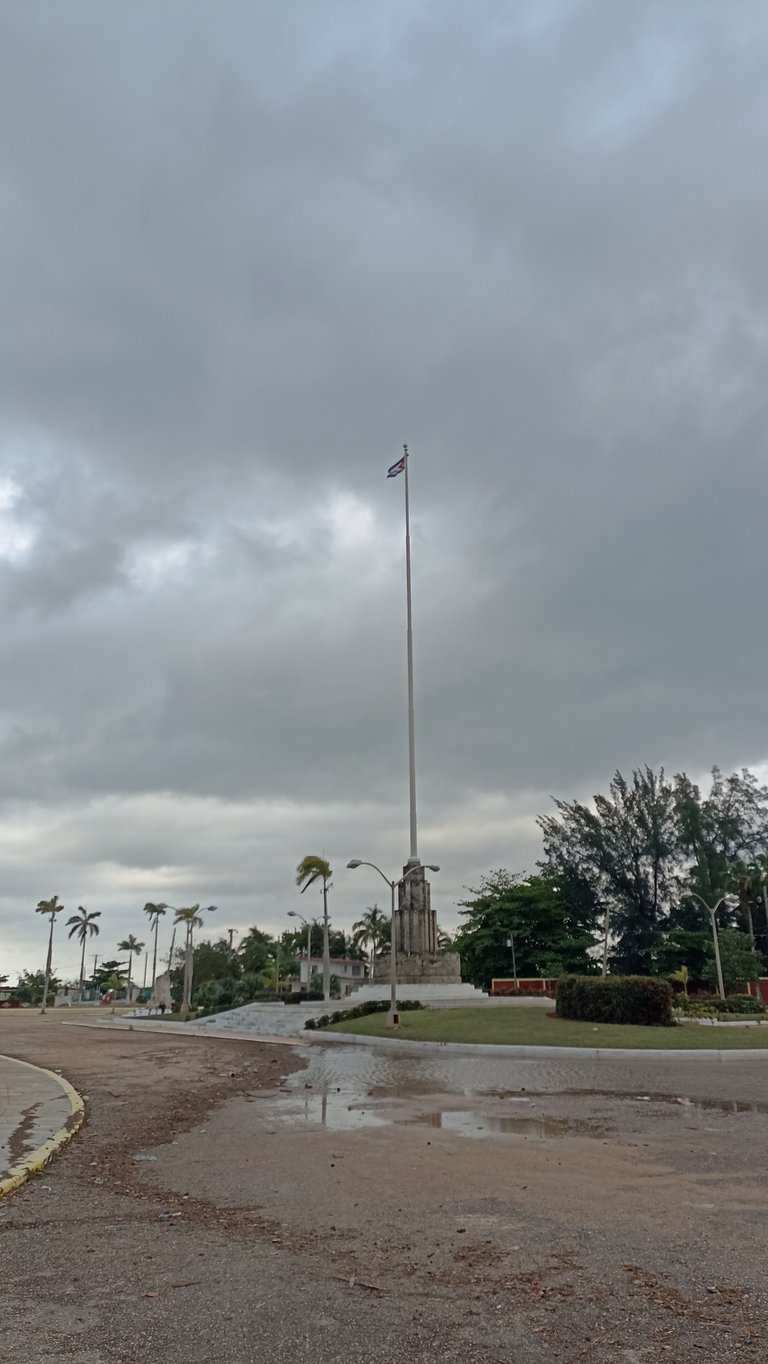
Seguimos nuestro camino y llegamos hasta un barco encallado en la orilla. Los residentes llaman a este lugar La Patana. Esta embarcación es bastante grande y nos informaron que solía estar anclado en medio de la bahía y servía como discoteca flotante.
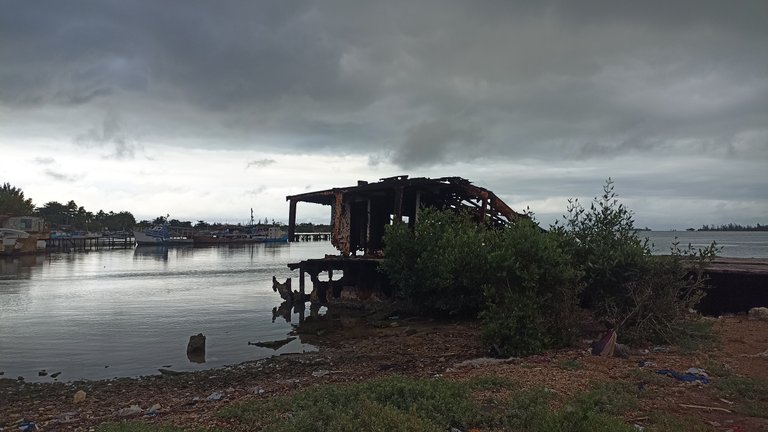
Desde La Patana pudimos confirmar que nos encontrábamos en una bahía de bolsa, y aunque la bahía real no cerraba aquí, vimos a lo lejos una punta que parecía accesible.
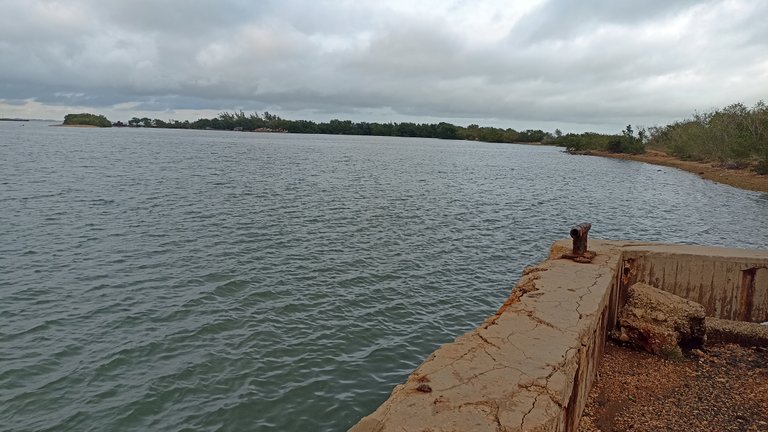
Nos dedicamos a bordear la costa y pasamos por un punto con esta vista impresionante del mar en calma.
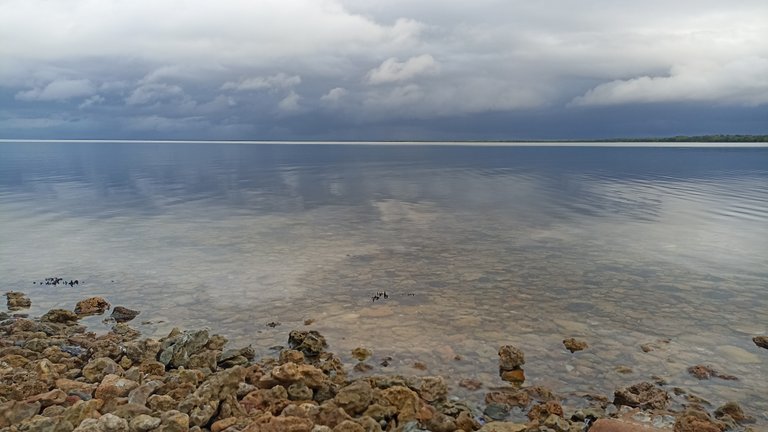
Ya del otro lado, nos percatamos que nos encontrabamos en un cementerio de barcos, donde habían arrasrado los restos de botes de varios tamaños y materiales.

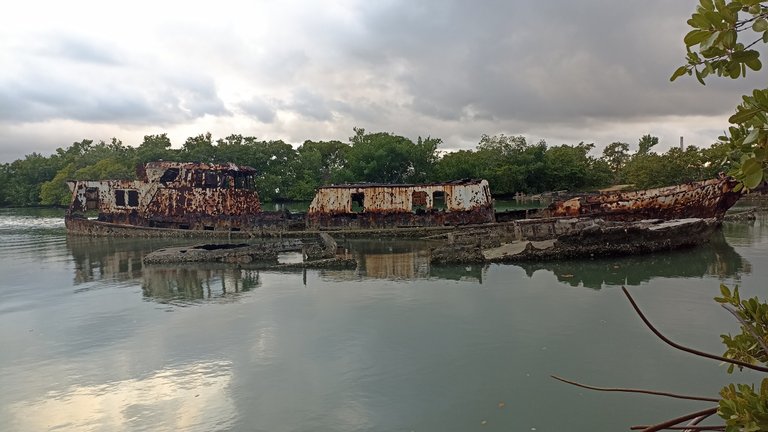
Mirando atentamente, me encontré un esqueleto de estrella de mar, así como esta planta cuyo nombre desconozco.
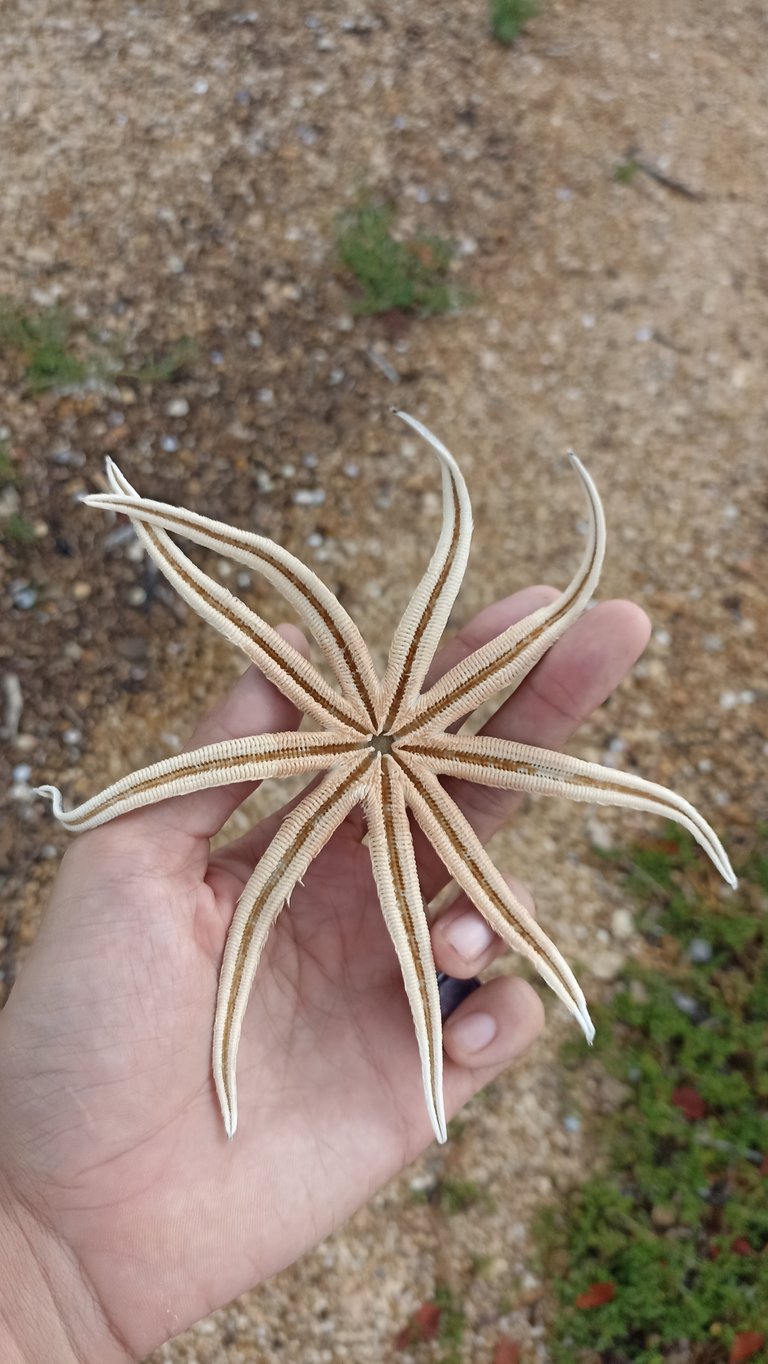
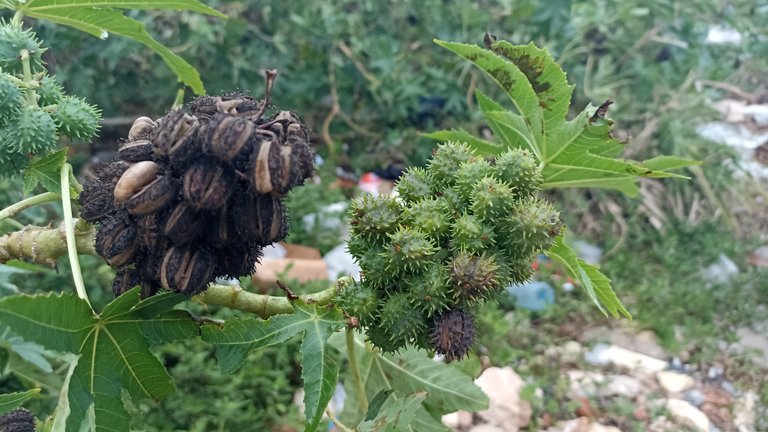
Finalmente para cerrar el viaje, ya que se dice rápido pero fueron tres horas de exploración, volvimos por un camino poco ortodoxo, donde más de una vez nos mojamos los pies en charcos infranqueables.
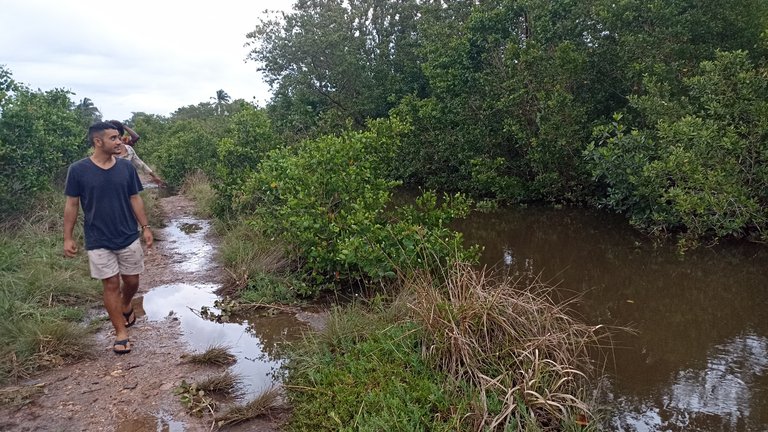
Como última recompensa, vimos a lo lejos este otro edificio abandonado en medio del campo que parece completamente sacado de una película de terror.
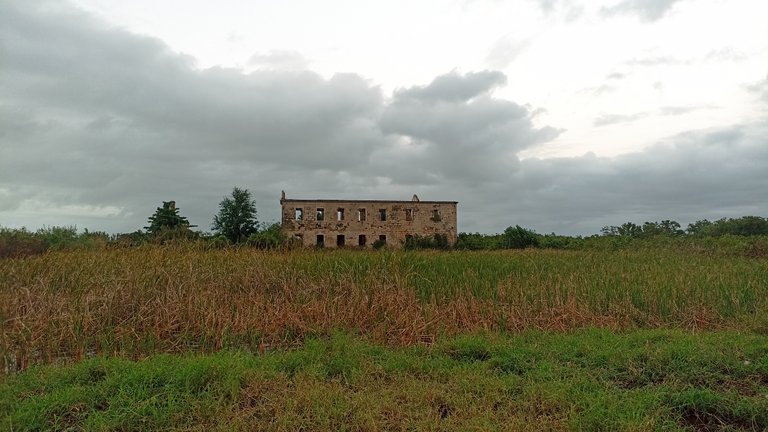
Aunque no estuvimos mucho tiempo y nos quedaron multitud de lugares por visitar, una cosa sí pudimos sacar en claro, Cárdenas es una ciudad maravillosa que realmente vale la pena recorrer.
Notas:
- Todas las fotos son propias 📸
- Traducido en DeepL
Cárdenas
The city of firsts, as its people like to call it. Cárdenas, as it is officially named. This city located in the north of the province of Matanzas, very close to the famous beach of Varadero, exudes history and tradition.
On the Real Street, which is the main street of this city, there are various businesses such as bars, cafes, and recreational centers. Our first stop was here, at an ice cream parlor with this curious decoration:

After wandering around the city for a while, we came across José Antonio Echeverría Park. This park is named after this patriot because his birthplace is across one of the park's streets.


Nearby, there are also different museums, such as the Oscar María de Rojas museum and the Museum of the Battle of Ideas. The latter was renamed during the campaign for the return of the child Elián[3] (born in this city as well), but previously it was a fire station (which is quite evident because the inscription clarifying it remains).


We found many old buildings that retain part of their original architecture but are practically in ruins, like this floor and wall that denote an old house with high stilts.



We continued our journey to Colón park, where you can find the cathedral of Cárdenas, the La Dominica hotel, and the first statue of Christopher Columbus in America, erected in 1860.





We noticed in the same park a slightly anachronistic red metallic element, and when we asked, we were told it's a buoy that the 1936 cyclone[4] dragged from the coast to this point, and where it fell, they erected it as a monument in memory of that disaster.

Near the park there was an old Masonic lodge, with this inscription on the sidewalk.

We also saw an abandoned building that seemed to have a forest growing inside, as well as some industrial buildings like this rum factory.

 .
.
Finally, we found the spot where the Cuban flag was raised for the first time by Narciso López. However, the monument was a bit disappointing because although the monumental flagpole was imposing, the flag waving looked rather insignificant. Nevertheless, it is a very attractive place since it is right in front of the sea.

We kept going and arrived at a ship stranded on the shore. The residents call this place La Patana. This ship is quite large and we were informed that it used to be anchored in the middle of the bay and served as a floating disco.

From La Patana we could confirm that we were in a bay within a bay, and although the real bay did not end here, we saw in the distance a point that seemed accessible.

We dedicated ourselves to explore the coast and passed by a point with this impressive view of the calm sea.

On the other side, we noticed that we were in a boat cemetery, where the remains of boats of various sizes and materials had been washed ashore.


Looking carefully, I found a starfish skeleton, as well as this plant whose name I don't know.


Finally, to close the trip, after three hours of exploration, we retraced our steps through an unorthodox path, where more than once we got our feet wet in impassable puddles.

As a final reward, in the distance we saw this other abandoned building in the middle of the field that looks like it's straight out of a horror movie.

Although we didn't spend much time and there were plenty of places left to visit, one thing we could certainly take away is that Cárdenas is a wonderful city that is truly worth exploring.
Notes:
- All pictures are of my own 📸
- Translated in DeepL
Para los que son un poco ajenos a la historia de Cuba, les debo la explicación de qué sucedió con Elián, pero si pueden busquenla que es muy interesante. ↩
Fuerte tormenta que azotó Cuba en 1936 y dejó a su pasó grandes perdidas económicas y de vidas humanas. ↩
For those of you who are not familiar with the history of Cuba, I owe you the explanation of what happened to Elián, but if you can look it up, it is very interesting... ↩
Strong storm that hit Cuba in 1936 and left in its wake great economic losses and loss of human lives. ↩
Congratulations @rigomohe! You have completed the following achievement on the Hive blockchain And have been rewarded with New badge(s)
Your next target is to reach 90 posts.
You can view your badges on your board and compare yourself to others in the Ranking
If you no longer want to receive notifications, reply to this comment with the word
STOPCheck out our last posts:
Congratulations @rigomohe! Your post made the TravelFeed team happy so we have sent you our big smile. Keep up the good job. 😃
Thanks for using TravelFeed!
@for91days (TravelFeed team)
PS: Have you joined our Discord yet? This is where over 1000 members of the TravelFeed come together to chat. Join us!
Congratulations, your post has been added to Pinmapple! 🎉🥳🍍
Did you know you have your own profile map?
And every post has their own map too!
Want to have your post on the map too?
Travel Digest #2172.
Become part of our travel community:
- Join our Discord
Hiya, @lizanomadsoul here, just swinging by to let you know that this post made it into our Honorable Mentions in Your post has been manually curated by the @pinmapple team. If you like what we're doing, please drop by to check out all the rest of today's great posts and consider supporting other authors like yourself and us so we can keep the project going!Thanks. I'm very grateful.